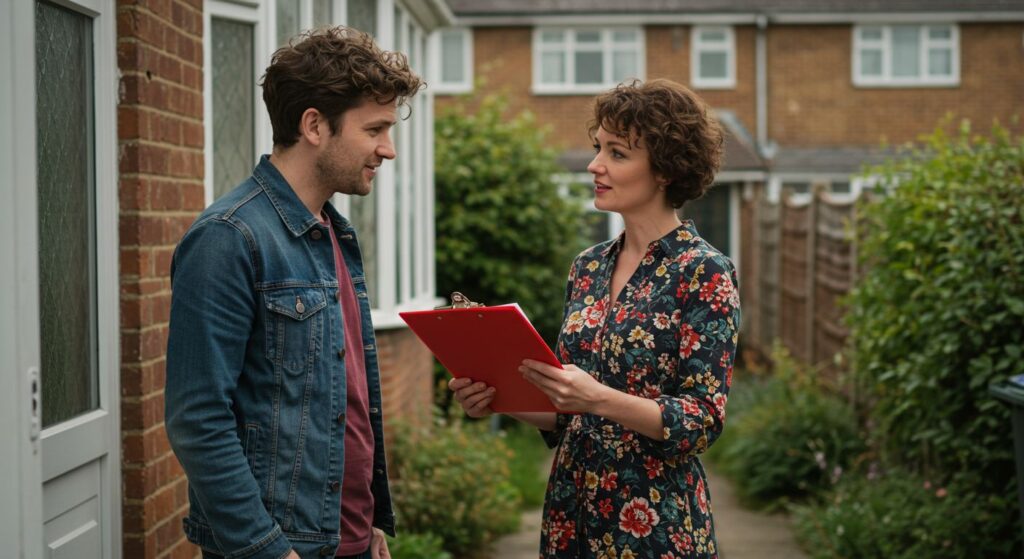In a political manoeuvre designed to win over labour voters, Nigel Farage unveiled significant welfare policy proposals challenging Labour’s traditional stronghold. His commitments to scrap the two-child benefit cap and reinstate universal winter fuel payments have intensified the political discourse and demonstrated that Reform are now firmly challenging Labour having maxed out its support from traditional Tory voters.
The announcement marks a strategic shift for Reform UK, traditionally known for its right-leaning stances. By pledging to remove the two-child benefit cap; a policy introduced in 2017 limiting welfare support to the first two children in a family, Farage positions his party as an advocate for low-income families. Opinion polls already show that Reform is ahead of Labour amongst the poorest demographics in the UK. He argues that this move is not about endorsing a “benefits culture” but about easing financial pressures on working families and encouraging British families to grow.
Additionally, Farage has committed to restoring the winter fuel payment to all pensioners, reversing recent cuts that had restricted these payments to those receiving pension credit. This policy aims to alleviate the financial burden on the elderly during colder months. The Labour government scrapped the winter fuel payments in 2024 as part of its efforts to clear the £22Billion black hole left by the Conservatives. While on the face of it this poses a real and severe threat to the solidity of the Labour Party in parts of the country it is a massive opportunity for the Labour government to demonstrate fiscal responsibility against reckless uncosted Reform plans.
To fund these policies, Farage proposes significant cuts to government spending, including eliminating net-zero climate policies, ending diversity and equality programs, and reducing expenditures on quangos. He claims these measures could save up to £225 billion over five years but at his own press conference admitted that his “sums don’t add up”. This demonstrates that Reform will say anything to win support without providing the sensible and cost policy detail.
In response to Reforms announcements the Prime Minister, Kier Starmer said, “ And the choice at the moment is between the choice of a Labour government that thinks stable finances are at the heart of building better lives for working people, or Nigel Farage and Reform, who only this week said they would spend billions upon billions upon billions, tens of billions of pounds, in an unfunded way, which is an exact repeat of what Liz Truss did.
And it wasn’t Nigel Farage that lost, he’s all right, it’s working people across the country who lost out, and I am not prepared to allow that ever to happen in this country again”
Keir Starmer is facing mounting pressure due to these announcements. The party has historically grappled with the two-child benefit cap. While some Labour MPs advocate for its removal, citing its impact on child poverty, the leadership has been cautious, emphasizing fiscal responsibility. The party has announced a partial U-turn on winter fuel payments, extending them to more pensioners. This is in part due to being able to do this as a result of the improving economic conditions but also as pressure mounts from MPs following the rise of Reform.
But this is where Labour can demonstrate that against Reform, only Labour can run the economy in a managed and sensible way. The IMF have increased growth forecasts, and the UK economy was the fastest growing economy in the G7. Interest rates have fallen but inflation stubbornly remains higher than the previous norm. The government must now accelerate infrastructure spending, boost housebuilding and when possible, reduce the burden of taxation on working people, but not before growth is embedded. If Labour can demonstrate over the next few years that its policies are delivering economic growth and improved public services, it will win handsomely and beat Reform.
Critics have labelled Farage’s economic plans as “fantasy economics,” questioning the feasibility of his proposed savings and the potential impact on essential services. The Institute for Fiscal Studies estimates that raising the income tax threshold to £20,000, another of Farage’s proposals, could cost between £50 billion and £80 billion. For the first time Reform is facing the same level of scrutiny as any other national party and they have fallen at the first hurdle. Labour needs to focus on this as it is Reforms weakness. We have seen through successive elections how political parties will not win if the public does not trust in their ability to run the economy and manage the public finances. Black Wednesday ruined Major and the Tories. The 2008 crash ruined the Brown government. The Liz Truss economic disaster spelled doom for The Tories. Labour in 2015, 2017 and 2019 lost because Ed Miliband and Jeremy Corbyn were not trusted on the economy, public spending and taxation. In the words of James Carville, “it’s the economy stupid”.
Despite these criticisms, Farage’s policies resonate with a segment of the electorate disillusioned with traditional parties. His direct appeal to working-class voters, particularly in regions known as the “Red Wall,” challenges Labour’s historical dominance in these areas. But working-class communities are those that would be most acutely affected by the catastrophic and uncosted policies of Reform and their Liz Truss impersonator of a leader. Labour must relentlessly focus on exposing this weakness to the public. Explain and spell out to the voters what £50-m£80billion of cuts will look like in every community- reduced GP appointments, larger class sizes, pay freezes, less potholes filled. We need to explain to voters what those increases in spending will mean for other services. If Reform are not planning to increase taxation but they are planning spending increase in one area it will mean other areas budgets have to be depleted. This kind of approach is also one that mainstream media, who largely favour controlled spending, and a well-managed economy could even support. Keir Starmer is right to attack Reform on their economic policies and we must continue this charge through to 2029. The British people know if they are being sold something that is too good to be true and they will see Reform for what they are- a party that will say anything to gain favour but with no plan to afford it.




